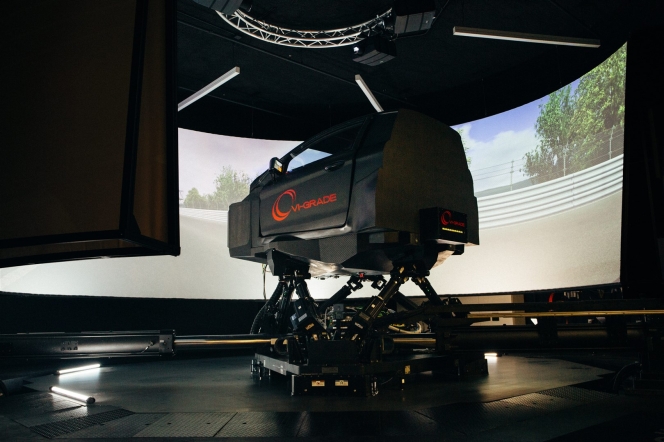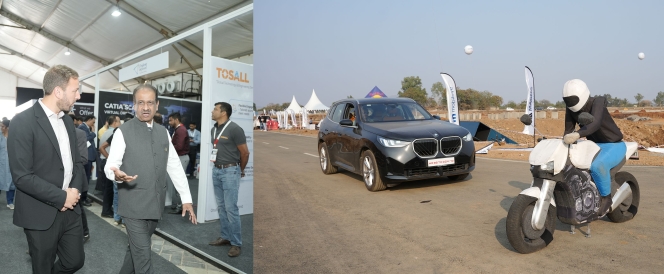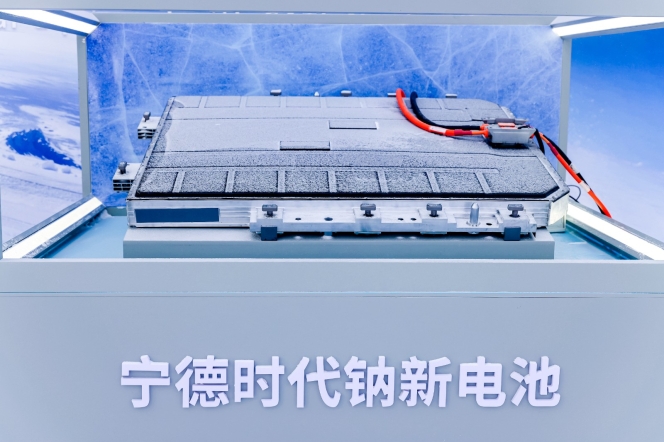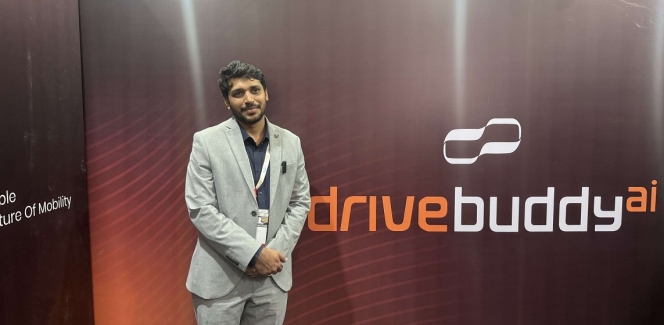- Pirelli
- Science Based Targets initiative
- Greenhouse Gas Emissions
- Paris Agreement
- Net Zero
- SBTi
- Sustainability
- Global Warming
Promote Auto LPG While Awaiting EVs For Clean Air
- By 0
- April 05, 2020

A recent study conducted by researchers from the International Council on Clean Transportation (ICCT), George Washington University, and the University of Colorado Boulder in the US estimated that vehicle tailpipe emissions were linked to about 385,000 premature deaths from ambient PM 2.5 and ozone worldwide in 2015. An estimated 70 percent of these occurred in the four largest vehicle markets -- China, India, the EU, and the US.
While the figures paint a grim picture, we see no urgency in bringing about an immediate improvement in air quality standards. The government of India has put a long-term policy focus on shifting to electricity as a transport fuel. However, this will bear fruits only after at least a decade of work and infrastructure development. As we wait for electric vehicles, we must not lose the opportunity to use the readily available cleaner fuels such as auto LPG which can clean the urban air faster.
In the wait for the roll-out of EVs, India is missing on the immediate environmental benefits of auto LPG, an easily deployable source of transport power. It emits up to 120 times less particulate emissions than diesel vehicles; 96 percent less nitrogen dioxides (NOx) than diesel and 68 percent less NOx than petrol. It is also more than 30 percent cheaper than petrol. Over 26 million vehicles across 70 countries run on auto LPG. South Korea sells 4 million tonnes of this fuel annually. In the US, Russia, Japan and China, governments incentivize auto gas usage with tax breaks on sales, excise, registration, parking and road use charges.
Two-wheelers
More than 40 percent of vehicular pollution in Delhi comes from two-wheelers. Across the country, 2-wheelers account for more than 75 percent of vehicles on roads. We need to start pushing two-wheelers towards cleaner fuels as well. Auto LPG makes for the most viable alternative. The 2-wheeler conversion kit is available for about INR 5000-5500 along with a convenient side fitment of the LPG Tank.
Promote Gaseous Fuels
While a large number of buses and public transport vehicles in several cities are running on CNG, it is also necessary to convert a substantial number of private vehicles to gaseous fuels. Rapidly shifting to a mix of CNG and auto LPG is an easier task than shifting to EVs. While the government supports CNG through the City Gas Distribution Project, it has left out auto LPG.
Auto LPG has several advantages over CNG, including 5-6 times less installation cost for refueling stations and less engine performance loss. Globally, auto LPG is the third most commonly used automotive fuel after petrol and diesel. Seven of the 10 large car manufacturers produce LPG-powered cars. Auto LPG occupies very little space in car boots and can be transported in cylinders in trucks to distant outposts.
Auto LPG is already available in 500 Indian cities and it neither needs any major infrastructural overhaul nor any subsidies to encourage consumers. It is important that the government frames policies that are favorable to all alternative fuels to allow consumers a wider choice.
An urgent policy intervention is to change the Type Approval norms of the Ministry of Road Transport for vehicles converting to gaseous fuels. In India companies have to renew the extremely costly Type Approvals for auto LPG and CNG conversions every three years. This has resulted in a rapid dwindling of players in the retro-fitment market. The Type Approval Validity must be made perpetual in line with the European norms. Similarly, the GST rate on LPG conversion kits for vehicles must be reduced from 28 percent to 5 percent as a measure to push up the rate of vehicle conversion to environment-friendly fuels. The GST rate on auto LPG also needs to be brought down from 18 percent.
(Suyash Gupta Is Director General of Indian Auto LPG Coalition; views expressed are personal)
Multimatic Installs First VI-grade HyperDock System In North America
- By MT Bureau
- February 20, 2026

VI-grade has announced the installation of its HyperDock cockpit at Multimatic’s Vehicle Dynamics Centre in Novi, Michigan. This deployment marks the first instance of HyperDock technology in North America. The system upgrades an existing DiM250 driving simulator, installed in 2020, into a platform capable of simultaneous vehicle dynamics and NVH (Noise, Vibration, and Harshness) development.
The HyperDock consists of a carbon-fibre cockpit designed to increase stiffness and reduce inertia. By removing the traditional top disk in favour of a direct actuator interface and integrated vibro-acoustic feedback, the system allows engineers to assess ride, handling and acoustics within a single environment.
The upgrade introduces ‘full-spectrum’ simulation, which bridges the gap between high-frequency vibration testing and low-frequency motion cues.
- Construction: Lightweight carbon-fibre frame.
- Interface: Direct actuator connection to minimise signal delay and mechanical loss.
- Feedback: Integrated tactile and audio systems for vibro-acoustic realism.
- Application: Simultaneous tuning of vehicle handling and interior cabin noise.
Peter Gibbons, Technical Director – Vehicle Dynamics, Multimatic, said, “After evaluating the VI-grade HyperDock Full Spectrum Simulator cockpit at the SimCenter Udine over a year ago, Multimatic quickly realized that it would provide a significant step forward in the fidelity of all DiM applications, from road car ride tuning to race car limit handling. The overwhelmingly positive responses from Murray White, Technical Director of Vehicle Development at Multimatic, and Dirk Müller, professional race car driver, affirmed Multimatic’s decision to upgrade to HyperDock. The added immersion, superior tactile feedback, and audio advancements have moved the goalposts well beyond our expectations. Multimatic looks forward to continuing to leverage the impressive capabilities of HyperDock over the coming years.”
Alessio Lombardi, Global Sales Director – Simulation, VI-grade, added, “With the addition of HyperDock, Multimatic now benefits from full-spectrum simulation capability, expanding the scope of development activities that can be performed on an already well-established simulator platform. This installation represents an important milestone for VI-grade, as it brings HyperDock technology to North America for the first time.”
- ADAS 2026 Show
- Autonomous
- Driving
- Developments
- Magna
- Mobileye
- Renault
- Ampere
- Mobileye
- Tata Motors
- ARAI
- Aayera
- demo
- live
- conference
- inauguration
- automotive
ADAS 2026 Show Looks At Autonomous Driving Developments
- By Bhushan Mhapralkar
- February 20, 2026

Postponed from December 2025 to February 2026, the ADAS Show 2026 by Aayera was a combination of stalls where diverse players from the field of ADAS or autonomous driving highlighted their latest developments. There were live demo sessions that saw the use of passenger vehicles, trucks and dummies to highlight the technological prowess in the field.
Held at ARAI’s newest testing and certification facility for ADAS and other modern automotive technologies at Takwe (Pune), the show saw experts speak about the autonomous future in panel discussions, presentations etc. Live demos highlighted progress on the computing and vision front; on the software front, underlining certain zest.
In his inaugural address, Dr Reji Mathai, Director, ARAI, spoke about the motive behind setting up an ADAS testing facility at Takwe. Observing that tracks never give returns to draw attention to the decision of setting up an ADAS testing track at Takwe (the newest yet by ARAI), Dr Mathai informed that ARAI participates at the UN level in regulation forming.
Dr Mathai; Elie Luskin, Vice President – India and China, Mobil Eye, and Nina Roeck, Vice President – Software Engineering (Drive & Comfort), Ampere (Renault Group), were united in their expression about India’s unique traffic and driving conditions. The trio stressed on localisation of ADAS system parts such as sensors; on local engineering and development, and on local testing and validation.
“In India, the conditions are different and the effort therefore is to focus on perception, alerts and interventions that consider the local driving condition,” said Roeck.
Asserting that India’s expanding auto market has disproportionately low ADAS. Luskin explained, “ADAS would become mainstream as India’s GDP per capita grows.
Apurbo Kirty, Head – Electrical & Electronics, ERC, Tata Motors, focused on advanced driver assistance in CVs in his address. He referred to road challenges in India, road accident statistics and the challenges for ADAS implementation in terms of SAE autonomy levels, regulations like GSR 834 and how ADAS is a necessity rather than just a tech upgrade.
Touching on the complexity of landscape of Indian road conditions, Abijit Sengupta, Head of Business – SAE and India, HERE Technologies, spoke about vehicle safety trends such as connected vehicles, autonomous, shared services and electrification.
Changan And CATL Launch Mass-Production Sodium-Ion Battery Vehicle
- By MT Bureau
- February 19, 2026

Changan Automobile and CATL have unveiled the first mass-production passenger vehicle equipped with sodium-ion batteries. The vehicle, showcased at the 'Changan SDA Intelligence Milestone Release', is scheduled for market release by mid-2026. CATL, acting as the strategic partner for the project, will supply its Naxtra sodium-ion batteries across Changan’s brands, including Avatr, Deepal, Qiyuan and UNI. The partnership introduces a dual-chemistry approach to the market, utilising sodium-ion alongside lithium-ion technologies.
CATL's Naxtra battery reaches an energy density of 175 Wh/kg. Utilising a Cell-to-Pack system and a battery management system (BMS), the technology provides a range exceeding 400 km. Future iterations are projected to reach 500–600 km for battery electric vehicles (BEVs) and 300–400 km for hybrids.
The technology is designed for operation in cold climates. At –30deg Celsius, the battery delivers triple the discharge power of lithium iron phosphate (LFP) alternatives. It maintains 90 percent capacity retention at –40deg Celsius and continues to function at –50deg Celsius. Safety testing, including drilling and crushing, resulted in no smoke or fire.
The global sodium-ion battery market is forecast to grow from USD 1.39 billion in 2025 to USD 6.83 billion by 2034. To support adoption, CATL plans to establish over 3,000 Choco-Swap battery swap stations across 140 cities in China by the end of 2026, with a focus on northern regions.
The launch follows a decade of research. Since 2016, CATL has invested nearly 10 billion RMB (USD 1.45 billion) into sodium-ion technology, developing approximately 300,000 test cells. The project was supported by a dedicated team of 300 personnel to ensure scalability and performance.
Gao Huan, CTO of CATL's China E-car Business, said, "The arrival of sodium-ion technology marks the beginning of a dual-chemistry era. Changan's vision shows both its responsibility for energy security and its strategic foresight. Much as it embraced electric vehicles years ago, Changan is once again taking the lead with its sodium-ion roadmap. At CATL, we value the opportunity to work alongside such an industry leader and fully support its strategy, combining our expertise to bring safe, reliable and high-performance sodium-ion technology to market."
drivebuddyAI Demonstrates Scalable ADAS Platform At India’s First ADAS Test Track
- By MT Bureau
- February 18, 2026

Following its international unveiling at CES 2026, drivebuddyAI, a leading innovator in AI-powered Advanced Driver Assistance Systems (ADAS) and Driver Monitoring Systems (DMS), recently demonstrated its technology at the ARAI ADAS Test City. The company presented its range of vision-based Advanced Driver Assistance and Driver Monitoring Systems, focusing on their reliability in the varied and challenging conditions typical of Indian roads.
Live demonstrations were conducted using a heavy commercial vehicle to showcase the platform's versatility in meeting various compliance standards. A single, integrated hardware and software setup, utilising a fused network of cameras for 360-degree perception, executed multiple test scenarios simultaneously. These included a driver monitoring system that detects drowsiness, distraction and seatbelt usage in line with both Indian and European regulations. Further tests illustrated the vehicle's ability to warn of pedestrians moving into its path, identify potential collisions with cyclists in blind spots and issue forward collision warnings by combining radar and camera data.
Beyond merely fulfilling test requirements, the demonstrations highlighted practical applications that extend into everyday driving situations. This focus on real-world functionality is backed by extensive validation, with the company's systems having analysed nearly four billion kilometres of driving data. This has reportedly led to significant safety improvements, including a marked decrease in incidents caused by driver fatigue and a substantial reduction in overall fleet risks.
Currently validated for commercial vehicles against India's AIS-184 standard and Europe's stringent General Safety Regulation and Euro NCAP protocols for 2026, the technology is also adaptable for passenger cars. This scalability offers automotive manufacturers and their suppliers a pathway to not only meet but surpass upcoming global safety mandates. By refining its AI through extensive fleet operations over billions of kilometres before adapting it for original equipment manufacturer compliance, drivebuddyAI aims to deliver a mature, rigorously tested product that ensures an enhanced user experience.
Nisarg Pandya, CEO and Founder, drivebuddyAI, said, “ADAS Test City from ARAI is a great initiative, and we value participating in a format where we can showcase live demonstrations to a large audience together on the vehicle. This time, the turnout was significant and provided a strong opportunity to establish drivebuddyAI as one of the key players in the upcoming OEM compliance requirements. The engagement and response we received were phenomenal, reinforcing both the market need and the industry’s confidence in our solutions. The upcoming ADAS-compliant vehicles must have technology that works in Indian scenarios to achieve meaningful safety improvements and reduce fatalities.”






Comments (0)
ADD COMMENT